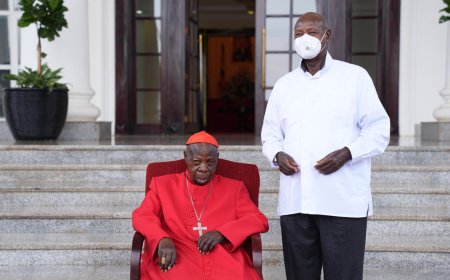Namibian MPs back anti-gay law despite Supreme Court ruling
Homosexual sex is banned in Namibia under a rarely enforced 1927 sodomy law.
WINDHOEK - Namibian lawmakers on Wednesday approved legislation to ban same-sex marriage and punish its supporters, in what critics said was an unconstitutional attack on the LGBTQ community.
The bill seeks to reverse a Supreme Court ruling that allowed for the recognition of some unions contracted abroad.
The legislation sailed through the upper house of parliament, encountering no opposition.
"The family union is between man and woman and that must be respected," Elder Filipe, a lawmaker with the ruling SWAPO party, told parliament.
"God created man with an anus for exit only and transforming it into an exit-entry is extremely (immoral)," he said.
The law redefines "marriage" as the union "between persons of the opposite sex" and "spouse" as "one half of a legal union between a genetically born man and genetically born woman".
It states that same-sex marriages contracted abroad are not to be recognised in the country.
It also makes celebrating, witnessing, promoting or propagating such wedlock a criminal offence punishable with up to six years in jail and fines of up to 100,000 Namibian dollars ($5,500).
"This feels like a direct attack on the LGBTQ community," LGBTQ rights activist Zindri Swartz told AFP. "It is a gross violation of our dignity and humanity."
Gay sex is banned in Namibia under a rarely enforced 1927 sodomy law.
But the southern African country has seen a flurry of court cases on the rights of same-sex couples to marry, become parents and immigrate in recent years.
In May, the Supreme Court said that same-sex marriages contracted abroad between Namibian citizens and foreign spouses should be recognised.
The ruling enraged social conservatives in the sparsely populated, largely Christian country, a popular tourist destination rich in wildlife and natural attractions.
But legal experts and opposition politicians have cautioned that by directly contradicting a Supreme Court ruling the new law might be unconstitutional -- and challenge the democratic foundations of the country.
"I have not seen bills written deliberately contradict judgments," said opposition leader McHenry Venaani. "I am not sure it would pass the test of constitutionality."
Inna Hengari, a lawmaker with Venaani's Popular Democratic Movement (PDM) party said in earlier parliamentary debates that the broadly worded legislation needed to be better defined or it risked leading to "unfair and unwarranted prosecutions".
Other opposition lawmakers have expressed support for the law, which has to travel back to the lower house of parliament and be signed by President Hage Geingob before entering into force.
































































































































